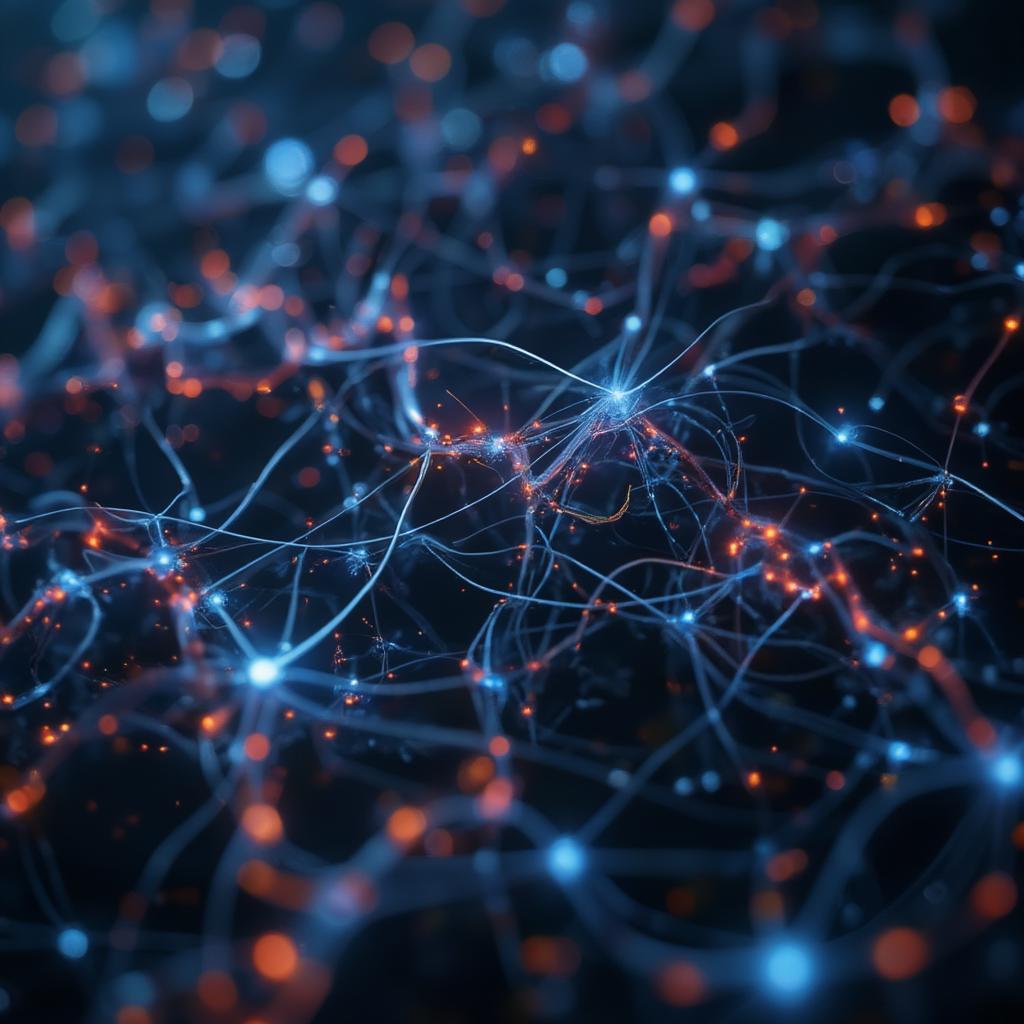Nerf AI: Navigating the Ethical Tightrope of Artificial Intelligence

The rapid advancement of artificial intelligence (AI) has brought about unprecedented opportunities, but it also presents significant ethical challenges. The concept of “nerfing AI,” or deliberately limiting its capabilities, is becoming increasingly relevant as we grapple with the potential risks associated with unchecked AI development. This exploration delves into the multifaceted issue of regulating AI, its ethical implications, and why it’s a crucial conversation for our future.
Why Do We Need to Talk About Nerfing AI?
The idea of intentionally limiting AI capabilities may seem counterintuitive, especially given the push for innovation. However, the potential downsides of unchecked AI are becoming too significant to ignore. We’re talking about issues like:
- Bias Amplification: AI models are trained on data, and if that data reflects existing societal biases, the AI will perpetuate and often amplify those biases. This can lead to discriminatory outcomes in areas like hiring, loan applications, and even criminal justice.
- Job Displacement: As AI becomes more sophisticated, it could automate jobs across various sectors, leading to widespread unemployment. The socioeconomic consequences could be devastating if not properly addressed.
- Autonomous Weapons: The development of AI-powered weapons systems raises profound ethical questions about the delegation of lethal force to machines, without human oversight. Are we comfortable allowing algorithms to make life-and-death decisions?
- Existential Risk: The potential for “superintelligence” – AI that surpasses human intelligence – is a theoretical but real concern. Uncontrolled superintelligence might pose an existential risk to humanity.
These risks highlight the need for careful consideration and proactive measures, including, in some cases, “nerfing” or deliberately limiting certain AI capabilities. The term is inspired by the video game world, where ‘nerfing’ refers to weakening an overpowered character or weapon to ensure balance. This is how we can conceptualize ethical AI development.

Addressing Bias: The First Step in Nerfing Unethical AI
AI models, like a child, learn from what they’re exposed to. If the data they are trained on is biased, the AI will inevitably reflect and amplify those biases. To ‘nerf’ this bias, we need to focus on several key areas. First, we need to ensure our datasets are diverse and representative. Second, we must implement robust methods for detecting and correcting bias in AI algorithms. Finally, the ongoing monitoring and auditing of AI systems is necessary to prevent the perpetuation of discriminatory outcomes. Dr. Eleanor Vance, a leading AI ethicist, stresses, “It is not enough to simply build AI; we must consciously build AI that is fair and equitable. This requires constant vigilance and a commitment to ethical practices in every step of AI development.”
How Can We Effectively Nerf AI?
“Nerfing AI” doesn’t mean stopping progress; it means carefully shaping it. Here are several practical approaches:
- Ethical Frameworks and Guidelines: Establishing global standards for ethical AI development, including principles for fairness, transparency, and accountability.
- Regulatory Oversight: Implementing laws and regulations that govern AI development and deployment, ensuring compliance with ethical standards and safeguarding against potential harm.
- Explainable AI (XAI): Developing AI systems that are transparent and understandable, allowing humans to comprehend how decisions are made, thus identifying and rectifying any errors or biases.
- Human-in-the-Loop Systems: Maintaining human oversight in critical AI applications, especially in areas like healthcare, criminal justice, and autonomous weapons.
- Impact Assessments: Conducting rigorous assessments of potential social, economic, and ethical impacts before deploying new AI technologies, mitigating the negative consequences before they happen.
The development of AI ethics isn’t about slowing down progress but ensuring it moves in a direction that benefits all of humanity. “We must integrate ethical considerations into the core of AI development, from research to deployment, ensuring we are not just creating powerful technologies, but also just technologies,” notes Professor Kenji Tanaka, a researcher on AI and society.
Should We Control AI’s Creativity?
One fascinating area for “nerfing AI” is the realm of creativity. As AI algorithms become capable of generating art, music, and writing, questions arise about the ownership, originality, and impact on human artists. There’s an ongoing debate about whether or not we should limit the creative capabilities of AI. Should AI be allowed to mimic human artists or should we enforce a higher standard for ‘original’ works? Is it important to keep the human touch in art, even if AI can create it faster? The lines are definitely blurring, and ethical considerations are paramount.
What Are the Societal Implications?
The conversation around ‘nerfing AI’ isn’t just a theoretical one; it has real-world consequences that impact everyone. Some key aspects to consider are:
- Economic Disruption: How do we mitigate the impact of job displacement caused by AI automation? Do we need to explore alternative economic models like universal basic income?
- Social Inequality: How can we prevent AI from exacerbating existing inequalities? How do we ensure that the benefits of AI are distributed equitably?
- Trust in Institutions: As AI becomes more pervasive, how do we maintain trust in institutions that use AI? How can we ensure AI systems are accountable and transparent?
These issues underscore the need for a collaborative approach, involving policymakers, researchers, and the public, to navigate these complex challenges. According to Sarah Chen, policy advisor on emerging technologies, “The dialogue surrounding AI ethics must move beyond research labs and into the halls of governments. We need comprehensive, adaptive policies that keep pace with rapid developments in AI, protecting societies from harm, while promoting innovation.“
AI and the Future of Labor
One of the most pressing concerns is the impact of AI on the job market. As AI systems become more sophisticated, they will likely replace human workers in various industries. It’s not just about blue-collar jobs anymore; even white-collar professions are at risk. This will have a profound effect on societies, as millions may find themselves unemployed without proper planning and new skills. We need to address this by investing in education and retraining programs that help people adapt to the changing job market, and reevaluating our traditional economic models to ensure people can still thrive.
The Challenge of Global Governance
The global nature of AI development presents a unique challenge. Different countries and cultures have differing views on AI ethics. How do we establish international cooperation and regulations that balance the needs of various societies? The lack of universal standards could lead to a race to the bottom, with countries adopting less ethical practices to gain a competitive edge. The global conversation surrounding ‘nerfing AI’ must happen quickly before irreversible damage is done.
Balancing Innovation and Ethics
There is an ongoing tension between promoting innovation and ensuring ethical practices in AI development. Some argue that excessive regulation could stifle progress, while others argue that unchecked innovation could lead to unacceptable risks. The challenge is to find a balance, encouraging innovation while ensuring that AI is developed and used responsibly. It’s about proactive thinking and futureproofing ourselves and our societies.
Conclusion: Shaping AI for a Better Future
The idea of “nerfing AI” isn’t about stopping progress; it’s about guiding it in a direction that benefits all of humanity. It’s a call for conscious and deliberate action, demanding that we address the ethical challenges presented by AI. This requires global cooperation, robust regulation, and a commitment to integrating ethical principles into every step of AI development. As we continue to develop and deploy artificial intelligence, it’s crucial we engage in this vital conversation, ensuring that AI serves humanity, rather than the other way around. The future of AI, and indeed our own future, depends on how well we navigate this ethical tightrope. Let’s steer AI toward a path of progress and ethics.




